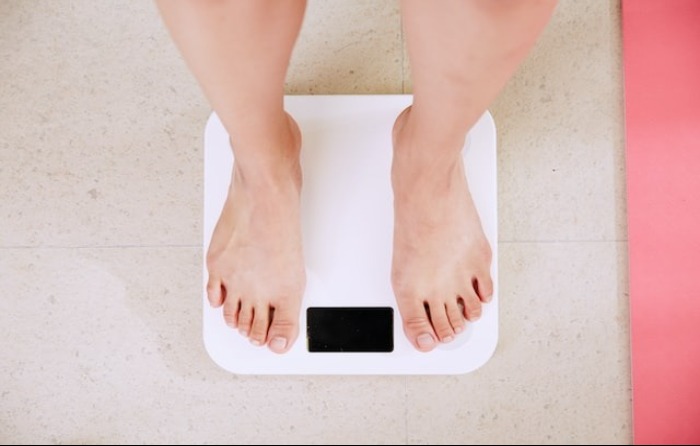
Top Causes of Weight Gain without Excessive Eating
It is true that gaining a few pounds of body weight results from consuming more calories than you burn. However, there are other covert causes for why you can be eating less but gaining weight.
These 8 causes may be to fault if you're having trouble with unintentional weight gain.
Your Potential Unintentional Weight Gain: Potential Causes
1. Not Getting Enough Sleep
Weight growth has long been associated with getting poor sleep. Researchers have already discovered a number of conclusive connections between sleep deprivation and fat. According to a new study published in Current Biology, the sleep-deprived group gained 2-3 pounds of body weight over the course of the two-week experiment.
What's more intriguing is that the researchers discovered that weekend catch-up sleep had no effect. What ties sleep to weight, then?
According to specialists, the nocturnal hormones leptin and ghrelin, which are produced by the body, cause those who are sleep deprived to eat more. Ghrelin tends to rise when you're sleep deprived and tells your brain when it's time to eat. However, leptin alerts your brain when it is time to stop eating. Leptin levels are reported to decrease with insufficient sleep time.
You get less inclined to exercise when you don't get enough sleep. Over time, this will unquestionably cause your waistline to grow.
2. Eating insufficiently
We're sorry to break your bubble, but cutting back on calories won't always result in weight loss. It might even cause your body to enter "starvation mode." Your body starts to worry that it is going hungry at this point, so it holds onto any calories it is given.
It's not always the case that eating too little causes weight gain. But when the scale doesn't budge and your metabolism slows down, it's simple to give up and return to bad eating patterns. In the end, this can result in weight gain. Because of this, fad diets that guarantee rapid weight loss simply cause frustration.
Solution? Give up thinking of calories as your enemy. Instead, adopt a sensible strategy that teaches your body how to burn fat over the long term.
3. Bad Exercise Routines
You also are all too aware of another potential explanation for your inexplicable weight gain: inactivity. There is no getting past the fact that if you aren't exercising enough, you are consuming more calories than you are burning. Your body will then be forced to retain the excess calories as body fat.
That may be the reason you keep weighing in higher even after giving up pizza and cutting out desserts from your diet.
This is especially true if you lead a sedentary lifestyle because sitting still causes your body to burn less calories.
4. Hormones May Play A Role
Hormonal abnormalities may also contribute to unintentional weight gain. The only way to prevent this, known as hormonal weight gain, is to maintain appropriate hormone levels.
Your doctor may start by identifying whether you have insulin resistance before talking about hormones and weight gain. Blood sugar levels rise as a result of your cells' resistance to insulin. Unintentional weight gain results from the storage of this extra blood sugar as fat.
In addition to insulin, many other hormones can become out of balance and result in unexplained weight gain. For instance, high amounts of the stress hormone cortisol can increase appetite and food cravings, which can result in weight gain. Thyroids, leptin, and ghrelin are a few additional hormones that might cause weight gain.
5. Direct medical causes
Check to see if there are any underlying medical conditions that may be to blame before you start to beat yourself up for gaining weight without cause. Your body's capacity to metabolise and store calories might be affected by illnesses like PCOS and hypothyroidism.
Additionally linked to bad eating habits and overeating, which can lead to weight gain, are depression and anxiety. Similarly, the hormones that control fullness and hunger can be affected by sleeplessness. This could undermine your willpower and cause you to make poor dietary decisions.
Regular physicals can aid in spotting early indications of various medical issues. Additionally, your doctor may assist in managing weight gain brought on by medical issues.
6. It might be inherited
Your chance of acquiring weight may also be influenced by your genetics. Some people have a genetic predisposition to gain weight more quickly than others, and their bodies may burn calories less effectively as a result.
If you have a family history of weight gain, you are more likely to suffer with it. But that doesn't mean your efforts to get healthy are out of control. Although genetics might influence weight gain and reduction, how fit you are ultimately depends on your lifestyle. You may prevent fat genes from making you unintentionally overweight by engaging in regular physical activity, abstaining from alcohol, and making wise dietary decisions.
7. It Is Common With Age
As you become older, it's normal to gain up to pounds annually. You'll start to lose muscle mass as you get older, and your metabolism will slow down, which could result in weight gain.
Your body consumes calories at a certain rate called your metabolism, which tends to slow down as you get older. Losing lean muscle, on the other hand, results in your body beginning to burn less calories than it did when you were younger. This means that even if you haven't increased your food portions, you still risk gaining weight unintentionally.
Other causes of weight gain with ageing include typical hormonal changes, little activity, and significant lifestyle changes.
8. You’re Retaining Too Much Water
When your body retains excess body fluids rather than excreting them, the condition is referred to as water retention or edoema. A week or less of brief temporary water retention is not cause for alarm. It can be eased by consuming less salt and more magnesium. Severe water retention, however, may be a symptom of a serious underlying disease that needs medical attention.
Here are five recommendations for properly shedding water weight;
- Reduce carbohydrates
- Boost your intake of potassium.
- Adopt a low-salt diet and engage in frequent exercise to sweat out surplus fluids.
- use a water pill (as described by a doctor)






